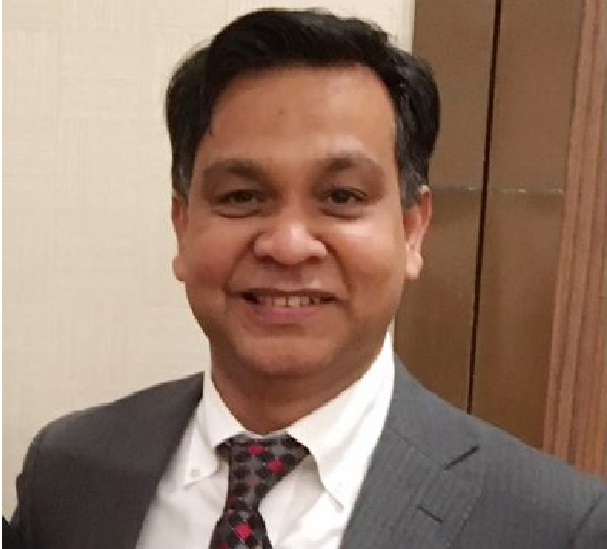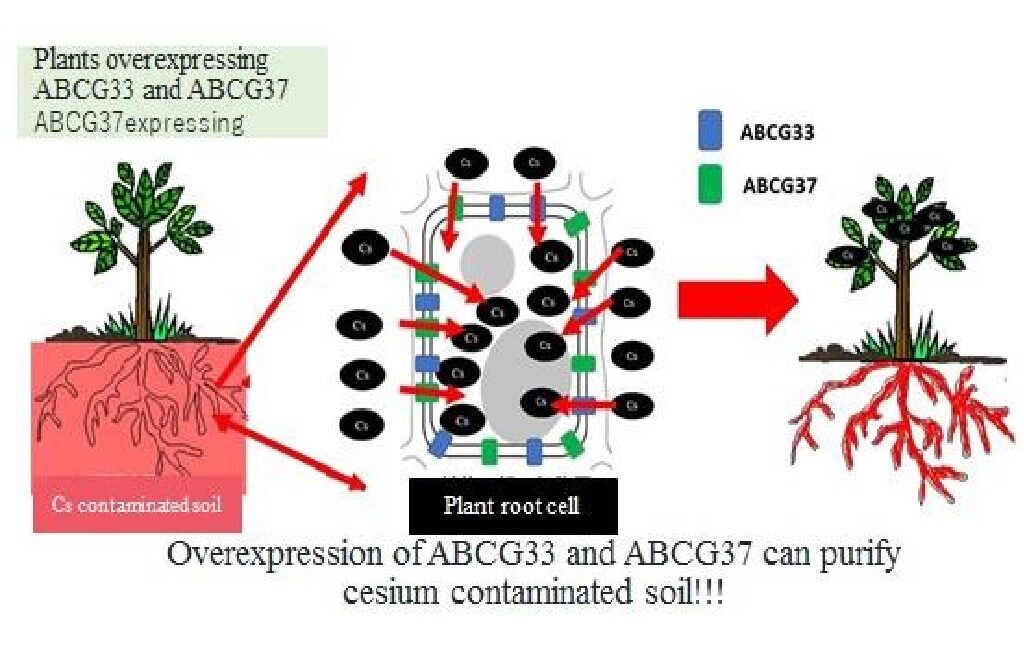
[caption id="attachment_6633" align="aligncenter" width="607"] Plant biologist Dr. Abidur Rahman. Picture: Collected[/caption]
In early 2017, plant biologist Dr. Abidur Rahman said in an interview that his research team in Japan was working on the molecular process of plants to absorb soil contaminants.
For four years, this Bangladeshi scientist led a research team to show the world the potential to clean up contaminated soils using phytoremediation techniques.
Phytoremediation is the direct use of living green plants for removal, degradation, or containment of contaminants in soils.
Japan’s Iwate University on Tuesday (Feb 16, 2021) announced that a team led by Dr. Abidur Rahman “For the first time in the world, discovered the potassium-independent cesium transporter and have shown the feasibility of cleaning up the contaminated soil using phytoremediation technique.”
The team’s findings were Published in international science journal Molecular Plant on February 12.
‘What does the discovery of potassium-independent cesium transport mean to the world?’ In response to this question, he said for the understanding of a common man;
Radioactive cesium accumulates in the soil in a nuclear accident and causes serious soil pollution problems. Soil is also polluted with other toxic metals such as cadmium and arsenic.
Previous findings indicate that cesium uses potassium transporters to be absorbed in the plant. Since potassium is an essential element, it is impractical to use potassium transporter over-expressors to absorb sufficient cesium from soil, as the soil will be depleted of potassium, resulting in an environment where no plants will be able to grow.
Plant biologist Dr. Abidur Rahman. Picture: Collected[/caption]
In early 2017, plant biologist Dr. Abidur Rahman said in an interview that his research team in Japan was working on the molecular process of plants to absorb soil contaminants.
For four years, this Bangladeshi scientist led a research team to show the world the potential to clean up contaminated soils using phytoremediation techniques.
Phytoremediation is the direct use of living green plants for removal, degradation, or containment of contaminants in soils.
Japan’s Iwate University on Tuesday (Feb 16, 2021) announced that a team led by Dr. Abidur Rahman “For the first time in the world, discovered the potassium-independent cesium transporter and have shown the feasibility of cleaning up the contaminated soil using phytoremediation technique.”
The team’s findings were Published in international science journal Molecular Plant on February 12.
‘What does the discovery of potassium-independent cesium transport mean to the world?’ In response to this question, he said for the understanding of a common man;
Radioactive cesium accumulates in the soil in a nuclear accident and causes serious soil pollution problems. Soil is also polluted with other toxic metals such as cadmium and arsenic.
Previous findings indicate that cesium uses potassium transporters to be absorbed in the plant. Since potassium is an essential element, it is impractical to use potassium transporter over-expressors to absorb sufficient cesium from soil, as the soil will be depleted of potassium, resulting in an environment where no plants will be able to grow.
 In search of a solution to clean up the soils, Dr. Abidur’s research group discovered for the first-time potassium-independent cesium uptake proteins and its causative gene. This work demonstrates the possibility that plants can absorb radioactive cesium efficiently without depleting soil potassium.
The world has witnessed horrors of nuclear power plant accidents – happened in Ukraine in 1986 and in Japan in 2011 – both causing release of tons of radioactive cesium to the environment. Consequently, the radioactive cesium found their way to the surrounding land, river, into the plants and animal feed, and eventually to our food cycle and ecosystem.
Dr. Abidur Rahman, who has a state-of-the-art lab named after him - 'The Abidur Lab' at the Iwate University's Agriculture Faculty, along with his research team discovered two binding proteins – ABCG33 and ABCG37 – which help plants’ uptake of cesium independent of potassium.
Researchers at the University of Iwate University, Shimane University and the University of Tokyo have demonstrated the efficacy of these two proteins by showing that more cesium is more pronounced when higher proteins are expressed.
The University of Iowa said in a press release on Tuesday (February 18, 2021) that "it is expected that plants over-expressing ABCG33 and ABCG37 can be used to realize phytoremediation methods to clean soil contaminated by radioactive cesium."
Dr. Abidur Rahman, a former senior postdoctoral researcher at the University of Massachusetts and served Japan Atomic Energy Research Institute, has long been teaching at the Department of Plant Bio Science of Iwate University.
He sits on the editorial boards of three prestigious science journals - PLOS ONE, Journal of Plant Growth Regulation and Frontiers in Plant Science while Iwate University’s ‘The Abidur Lab’ is engaged in, among other things, understanding the role of auxin (plant hormone) in growth of plants' roots. Dr. Abidur is hopeful that a better understanding will help them to develop drought-tolerant crop varieties.
Other members of the research team are: Prof Keitaro Tanoi and Ryohei Sugita of the University of Tokyo, Dr. Takashi Akihiro of Shimane University and Mohammad Arif Ashraf, Sayaka Kumaga and Keita Ito of Iwate University.
Source: Online/SZK
In search of a solution to clean up the soils, Dr. Abidur’s research group discovered for the first-time potassium-independent cesium uptake proteins and its causative gene. This work demonstrates the possibility that plants can absorb radioactive cesium efficiently without depleting soil potassium.
The world has witnessed horrors of nuclear power plant accidents – happened in Ukraine in 1986 and in Japan in 2011 – both causing release of tons of radioactive cesium to the environment. Consequently, the radioactive cesium found their way to the surrounding land, river, into the plants and animal feed, and eventually to our food cycle and ecosystem.
Dr. Abidur Rahman, who has a state-of-the-art lab named after him - 'The Abidur Lab' at the Iwate University's Agriculture Faculty, along with his research team discovered two binding proteins – ABCG33 and ABCG37 – which help plants’ uptake of cesium independent of potassium.
Researchers at the University of Iwate University, Shimane University and the University of Tokyo have demonstrated the efficacy of these two proteins by showing that more cesium is more pronounced when higher proteins are expressed.
The University of Iowa said in a press release on Tuesday (February 18, 2021) that "it is expected that plants over-expressing ABCG33 and ABCG37 can be used to realize phytoremediation methods to clean soil contaminated by radioactive cesium."
Dr. Abidur Rahman, a former senior postdoctoral researcher at the University of Massachusetts and served Japan Atomic Energy Research Institute, has long been teaching at the Department of Plant Bio Science of Iwate University.
He sits on the editorial boards of three prestigious science journals - PLOS ONE, Journal of Plant Growth Regulation and Frontiers in Plant Science while Iwate University’s ‘The Abidur Lab’ is engaged in, among other things, understanding the role of auxin (plant hormone) in growth of plants' roots. Dr. Abidur is hopeful that a better understanding will help them to develop drought-tolerant crop varieties.
Other members of the research team are: Prof Keitaro Tanoi and Ryohei Sugita of the University of Tokyo, Dr. Takashi Akihiro of Shimane University and Mohammad Arif Ashraf, Sayaka Kumaga and Keita Ito of Iwate University.
Source: Online/SZK
Comment Now